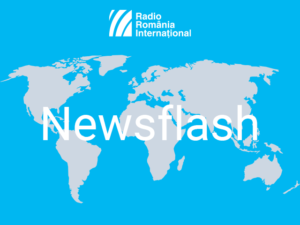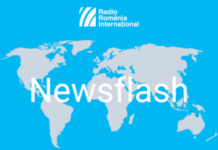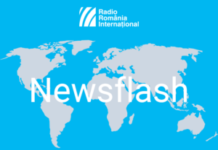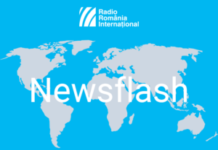TALKS – NATO’s eastern flank must be consolidated in the Baltic Sea area in the context of the war in Ukraine in order to prevent any conflict in this area, Romania’s president Klaus Iohannis said on Tuesday at the end of talks held in Bucharest with his Bulgarian counterpart, Rumen Radev. President Iohannis also underlined that security and stability in the Black Sea region are extremely important, and each riparian state has a responsibility to ensure it. On the other hand, the two presidents also discussed about diversifying energy sources and transport routes, in the context of curbing energy dependency on the Russian Federation. „I have also underscored the importance of rendering the Bulgaria-Greece pipeline operational as soon as possible”, Klaus Iohannis also said. Once finalized, the pipeline can be connected to the BRUA pipeline, which is already operational, the president argued. In turn, Bulgaria’s president, Rumen Radev, pointed out the need for interconnectivity between Bulgaria and Romania in terms of transport, energy, digitization and new natural gas connections. (Radio Romania International)
MEETING – Romania’s Defense Minister, Vasile Dîncu, on Tuesday met his Belgian counterpart, Ludivine Dedonder, at Base 57 in Mihail Kogălniceanu. According to a Ministry release, the Romanian official referred to the „seriousness of the situation generated by the invasion of the Russian Federation in Ukraine, which has fundamentally changed the European and Euro-Atlantic security paradigm”. Vasile Dîncu thanked his Belgian counterpart for the deployment to Romania of 300 military and equipment as part of NATO’s Rapid Response Force, a measure adopted at NATO level to consolidate the eastern flank. Another topic tackled during the meeting focused on Romania’s actions to support Ukraine. Minister Vasile Dîncu spoke about the opening of the logistics hub in Suceava which helps send humanitarian aid from abroad to Ukraine, and also referred to the management of the flow of refugees. The Romanian official hailed the good cooperation between Romania and Belgium and referred to the excellent partnership with the Military Hospital in Brussels, which helped treat Romanian patients with serious burns. (Radio Romania International)
WAR IN URKAINE – Almost all of Russia’s advance has been halted for several days, despite sustained bombing, the US State Department said. According to this assessment, the Russians have neither air superiority nor control over some of Ukraine’s major cities. On Tuesday morning, the center of Kyiv was shaken by several powerful explosions, but it is not clear if it was a Russian attack or the noise from the Ukrainian air defense systems, BBC reports. City residents are preparing for a possible siege. Ukraine accuses Russia of bombing civilians. The head of the Organization for Security and Co-operation in Europe (OSCE), Polish Foreign Minister Zbigniew Rau, has described Russia’s attacks on Ukrainian civilians as state terrorism. He believes that Russian troops have begun to attack the civilian population and infrastructure to demoralize the Ukrainians. The diplomat called on Russia to engage in dialogue in order to find a peaceful solution. On Tuesday, negotiations resumed, with Kyiv calling for a ceasefire and the withdrawal of Russian troops from Ukraine. Russia’s president, Vladimir Putin, mainly demanded that Ukraine remain neutral and demilitarized, the recognition of Russia’s sovereignty in Crimea and self-determination for the separatist republics in Donbas. (Radio Romania International)
REFUGEES – EU Health Ministers on Tuesday met in videoconference format to coordinate their actions in order to receive people wounded in the war in Ukraine, chronic patients and refugees from this country. Health Minister Alexandru Rafila invoked the sanitary resources Romania has already provided to the victims of the war in neighboring Ukraine, and reiterated Romania’s decision to provide medical care to all refugees coming in from Ukraine. The Romanian official said special vaccination centers will soon be opened in the border area, where refugees can get vaccinated, a measure aimed at preventing the appearance of new hotbeds. (Radio Romania International)










